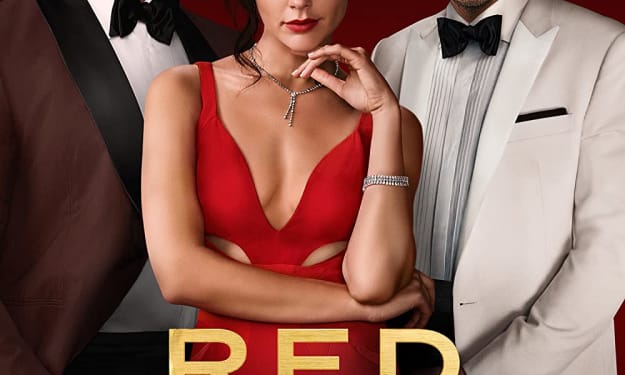What It Means When Characters Won't Stay Dead
Like it or not, we can't seem to stop telling stories about people coming back from the dead.

The scene has now become iconic.
Three warriors pursue their captured friends into a forest. Someone else is in the woods. Perhaps it is their great enemy. They gather their strength and prepare to fight, but blinding light renders all of their attacks useless.
Are they doomed?
No. They're coming face to face with one of their greatest allies. Although they saw him fall into darkness with their own eyes, somehow Gandalf is back from the dead, no longer the grey wizard. More powerful than ever before, Gandalf is now the white wizard.
Turns Out Death Wasn't So Final
We've seen this scene played out dozens of times since Gandalf returned, with varying degrees of success. It's become the source of mockery, and it's resulted in excitement and enthusiasm. The decision to bring a character back from the dead is almost always controversial. Some people will think it undermines the story's tension, and other people will just be happy to see their fictional friends return.
Take legendary fantasy writer George R.R. Martin, who says that...
I never liked Gandalf the White as much as Gandalf the Grey, and I never liked him coming back. I think it would have been an even stronger story if Tolkien had left him dead.

Yet, Gandalf's death clearly didn't ruin the movie for audiences, since The Two Towers actually outperformed The Fellowship of the Ring at the box office.
I'm not here to litigate whether or not it was lazy writing to bring Gandalf back, or whether it was particularly effective. Plenty of writing advice exists on the internet to inform these decisions. People love to talk about consequences, foreshadowing, story-world rules, and so on. And to be absolutely clear: all of that is great. If you are thinking about bringing a character back from the dead in your own writing but you want to do it in a way that doesn't annoy audiences, give it a quick Google search and I'm sure you'll find something helpful.
However, what I'm interested in is the different trends that have emerged from these stories, and the philosophical positions they represent. As I see it, there are basically three ways that characters come back from the dead, and they all have different functions. So let's take a moment and examine:
- The Good.
- The Bad.
- The Ugly.
I know, I know. But I just couldn't help myself.
The Good
We've already begun our discussion of the Good return from the dead with Gandalf. I would say that he's basically our archetype for this narrative role, except he himself seems to be building on the Jesus myth.
Side-note: I am using myth in the sense of cultural story or narrative. I am not using myth in the sense of misconception or falsehood, ala Mythbusters. Yes, I have ambitions, and I believe that I have some skill as a writer, but I don't believe that I can litigate the veracity of the Jesus story in a Vocal post.
With that established, its worth noting the huge shadow cast over human storytelling by the story of the son of God dying and then rising again, in some way perfected by this act of noble sacrifice.
That emphasis on perfection through sacrifice is what we're really talking about with the Good. This is our Gandalf, who sacrifices himself to stop a Balrog only to return more powerful than ever, and this is our Harry Potter. Think of the end of Thor, where Marvel's Thor demonstrates his worthiness by sacrificing himself to save the humans and only then are his godlike powers returned to him.

The philosophical underpinning of the Good, then, is the idea that sacrifice is somehow ennobling, and only through this dying-to-the-self can a hero achieve a greater level of enlightenment. In the case of Thor, it's enlightningment, but I digress.
That's directly at odds with...
The Bad
While the resurrection of the Good is a staple of fantasy stories, the resurrection of the Bad is at home in a horror tale. Obviously, you have your vampires and your zombies and all other forms of undead, but the real archetype here comes from the king of horror himself, Stephen King.
You know the line. Say it with me:
Sometimes dead is better.
See, when someone comes back from the dead as a vampire or a zombie in a horror story, it's fairly clear that the original character is long gone. They have become a zombie, and whatever character we loved is no longer at home behind those cold, dead eyes. That's why the heroes can shoot them in the face with a shotgun and not feel any sort of moral compunction.

However, it's not always that simple. There are also the characters who seem like themselves, only they have become perverted and evil in some way. Now they tempt and taunt the living protagonists, often to their doom, and the aesthetic similarity between these resurrected characters and their originals amplifies the creepiness.
Regardless, the moral of these stories is always the same. Disrupting the natural order of things, where all lives end in the same terminal destination, is meddling with powers that aught not be meddled with. Sometimes dead is better. You try to disrupt that natural order of things, and you will reap the whirlwind.
Notably, these resurrections are often even mechanically different than they are for the Good. The Good sacrifices themselves, and so they are rewarded for their sacrifice with a boost to their power. The Bad is often dragged back into the land of the living by someone else, and then the Bad functions as the tool to punish whoever dared disrupt that natural order.
But there is a middle-ground between these two points, and it's there that we find...
The Ugly
What do we make of the resurrections that aren't heroic enough to qualify as the Good or horrible enough to qualify as the Bad?
Well, I would call these characters the Messy, but then I wouldn't get to reference that movie title, so alas we are stuck with the Ugly. Who are the Ugly?
At the moment, there is one Ugly that's particularly famous in pop-culture, to the point that he's probably already on your mind. He starts out as a peppy young kid, but then on a train, fighting Nazis, things don't go so hot for him. He doesn't get a heroic moment of self-sacrifice, like his buddy Steve will a bit later in the movie, but he's also not emerging from a Pet Sematary.

The Winter Soldier is one Ugly. Brought back from the dead by evil Hydra scientists, the Winter Soldier isn't either as much of a lost-cause as a vampire, but he also doesn't get to come back with Captain America's clean slate. He's caught in the middle. He isn't a cautionary tale about violating the natural order of things, and he isn't a heroic tale about the power of self-sacrifice.
So what is he?
Well, to understand that better, let's look at a similar case: Jason Todd, aka Robin, is killed by the Joker. It's a pointless death. Jason didn't deserve it, and it wasn't a sacrifice. When he comes back from the dead, he has a score to settle, and he will use all of the training he got from Batman in order to settle that score. He's become the Red Hood.
I'll admit it: I like Red Hood better than Winter Soldier, because I think the main Red Hood stories understand the Ugly better than the most prominent Winter Soldier stories.

Red Hood becomes what Batman never allows himself to be: an executioner. Where Winter Soldier is burdened with regrets from what his body did while his mind was someone else's tool, Red Hood is fuelled by resentment for the fact that he never should have been killed.
Red Hood's story is a story about trauma, which is why even though it involves a character returning from the dead, there's something incredibly human about it. Humans are messy, and we respond to our own histories in messy ways.
Red Hood raises impossible questions: what should Batman do now that one of his proteges is violating his sacred rule? Did Batman fail Jason, not just by letting him die, but by never getting vengeance against the Joker? Does Jason have an obligation to live up to Batman, or has he achieved a twisted enlightenment of his own through death?
I think we'd all like to be the Good, and through self-sacrifice achieve enlightenment. There's a fear of the Bad and violations of the natural world. But we live our lives in the realm of the Ugly, as messy people trying to sort through our own baggage and making mistakes in the process.
Conclusion
Until humans stop telling stories, I doubt that we're going to stop telling stories about death being reversed. It's a magical question with no answers, so we get to invent our own logic for what should happen if someone comes back from the dead. Death is the one thing that brings all human lives together, so it makes sense that it remains such a focal point in our stories.
As well, it often feels like our lives are a series of small deaths. Our young selves die so we can become slightly older selves, and our innocent selves die with experience.
That is the nerve that I think all of these stories tap into, and in the case of the Ugly, its a particularly raw nerve for me.
So personally, I hope we see more of those stories going forward. While I like the Winter Soldier, I want to see more people who make messy mistakes without Hydra mind-control ultimately bearing all the responsibility. It raises so many interesting questions.
So if you are thinking about bringing a beloved character back from the grave, maybe take a moment to ask yourself exactly what you want to say with that moment. I'm sure you can think of something interesting, and if you do it right, it could even be profound.

If you enjoyed this post, please consider checking out some of my other writing. If you like what you see, I'd appreciate it if you left a like and subscribed.
About the Creator
Littlewit Philips
Short stories, movie reviews, and media essays.
Terribly fond of things that go bump in the night.






Comments
There are no comments for this story
Be the first to respond and start the conversation.